Thrse Desqueyroux
Thrse Desqueyroux
FRANOIS MAURIAC
TRANSLATION, INTRODUCTION, AND NOTES BY
RAYMOND N. MACKENZIE
FOREWORD BY JOSEPH CUNNEEN

A SHEED & WARD BOOK
ROWMAN & LITTLEFIELD PUBLISHERS, INC.
Published in the United States of America
by Rowman & Littlefield Publishers, Inc.
A wholly owned subsidiary of The Rowman & Littlefield Publishing Group, Inc.
4501 Forbes Boulevard, Suite 200, Lanham, Maryland 20706
www.rowmanlittlefield.com
PO Box 317
Oxford
OX2 9RU, UK
Copyright 2005 by Rowman & Littlefield Publishers, Inc.
All rights reserved. No part of this publication may be reproduced, stored in a retrieval system, or transmitted in any form or by any means, electronic, mechanical, photocopying, recording, or otherwise, without the prior permission of the publisher.
British Library Cataloguing in Publication Information Available
Library of Congress Cataloging-in-Publication Data
Mauriac, Franois, 1885-1970.
[Thrse Desqueyroux. English]
Thrse Desqueyroux / Franois Mauriac; translated by Raymond N. MacKenzie.
p. cm.
A Sheed & Ward book.
Includes bibliographical references.
ISBN 978-0-7425-4865-7 ISBN 0-7425-4865-1 (pbk.: alk. paper)
I. MacKenzie, Raymond N. II. Title.
PQ2625.A93T513 2005
843'.912dc22
2004028427
Printed in the United States of America
 The paper used in this publication meets the minimum requirements of American National Standard for Information SciencesPermanence of Paper for Printed Library Materials, ANSI/NISO Z39.48-1992.
The paper used in this publication meets the minimum requirements of American National Standard for Information SciencesPermanence of Paper for Printed Library Materials, ANSI/NISO Z39.48-1992.
Contents
Foreword
What a splendid idea to go back to Mauriac! Two generations have grown up since he won the Nobel Prize for Literature, and few in America today realize how widely he was read, and how greatly he was reveredand reviledat the time he was elected to the Acadmie franaise in 1934. One can only hope that Raymond MacKenzies fine new translation of Thrse Desqueyroux, along with his authoritative introduction to the novel, will bring a host of new readers to Mauriac, as well as remind those who have already encountered his work to check their local libraries to look up translations of many of his other books.
Because Mauriac brought honest expression to the repressed passions of his central characters, giving voice to what he later discussed as the anguish of the Christian life, many French Catholic readers in the 1920s considered his work disloyal and dangerous. Although a committed Catholic from his childhood in Bordeauxhis thesis for his license s lettres was The Origins of Franciscanism in Francehe had no intention of contributing to the pious literature approved by the bien-pensants of his day. The heroes of most of his early novels are writers still in the process of discovering their vocation. Mauriacs acknowledgment that Thrse, an unhappy woman who tried to poison her husband, is in many ways himself indicates the deep tensions present in his best work.
I am not a Catholic novelist, he declared at the height of the controversy surrounding his fiction, I am a Catholic who writes novels. Mauriacs fiction returns again and again to Bordeaux and his youth. I rediscover, he stated, the narrow Jansenist world of my devout, unhappy and introverted childhood. Later he was to embrace a more tolerant Christianity, less obsessed with a negative view of sexuality and more concerned with fostering a just and humanist society, but in Thrse his heroine remains a tortured figure.
This edition of the novel is especially helpful in adding Mauriacs first narrative effort to present his heroine, Conscience, the Divine Instinct. This takes the form of an imaginary letter from Thrse to her confessor; the novelists earliest intention was to present her as a believer who is consciously working out her salvation. In the finished novel, however, she shares her fathers rejection of Christianity, and has no sympathy for the correct practice of her husband and his family. When she is forced to attend Sunday Mass with them, however, she is somewhat drawn to the voice and mannerisms of the parish priest, identifying especially with his loneliness. The translator, I believe, has made a wise decision for this book, omitting three later short pieces in which Mauriac returned to Thrse. In the last of these, End of the Night, the unhappy woman finally submits to God, an ending which was sharply criticized by Jean-Paul Sartre as artificially imposed, a bad example of authorial omniscience.
In any case, Thrses story is a striking instance of Mauriacs criticism of the hypocrisy of bourgeois Catholicism in early twentieth-century France. The Bordeaux world he is describing is not far removed from that narrow nationalism and callous anti-Semitism exhibited a generation earlier during the Dreyfus affair. Respectability substituted for Christianity, and the desire to combine large landholdings made two families rush to insure Thrses marriage to Bernard Desqueyroux. What gives Mauriacs presentation of his heroine added depth is her realization that she too is attracted by the idea of owning hundreds of additional acres of pine forests. Though she is extremely intelligent, a constant reader, perhaps a frustrated writer, she does not question the economic order of her society, and enters into marriage as an inevitable fate. Clearly, opportunities for educated women have greatly increased since the 1920s, but an alert reader should be able to see that Mauriacs criticisms apply even today to all those who would reduce the demands of the spirit to conformity with the social imperatives of the world around them.
Though Mauriac is no feminist, he identifies deeply with Thrse, a woman manipulated by her society, in which the family controls her whole life, and where she can find no one to whom she is able to unburden herself. Her mother died when she was an infant; her father ignores her, totally absorbed by his hope to rise in local politics; her aunt Clara, a surrogate mother figure, is devoted to her but almost totally deaf. The world around Thrse is completely stifling, but her emotions remain deeply affected by the scent of pine trees and the sundrenched landscape of the Landes.
Although the author shows his debt to Dostoyevsky and Freud, he remains a disciple of Racine in his classical restraint and concentration of dramatic action. He even suggests a connection between Thrse and Racines Phaedra, including an ambiguous reflection by the heroine about her rustic Hippolytus. What is especially striking, as she travels home after her trial preparing for an encounter with her husband, is both the intelligence at work in analyzing her situation and her inability to come to any clear conclusions. Why had she married Bernard? What could enable her to breathe more easily?
There are no pat answers. Thrse has committed a crime and undergoes an excruciating process of self-understanding. She must work out her existence in a world in which women can only be mothers, wives, old maids, or prostitutes. Marrying her husband had seemed natural in great part because his younger sister, Anne, was the closest companion of her childhood. As a young girl Anne possessed the charm of innocence, but she was extremely nave, and easily taken in by the superficial charm of Jean Azevedo. The latter, though shallow, had a certain appeal for Thrse by confirming her independence and suggesting the possibility of a different life in Paris.
Thrse is narcissistic, shocking the family by apparent disinterest even in her own child, Marie. If she is also a criminal, it is worth keeping in mind that Mauriac calls the very writing of a book a violent act. It is also important that, despite Thrses passionate nature, her revolt against her husband was not because she desired another man; her act was an instinctive and desperate attempt to break out of the limitations of her existence. The novel, beginning near the end of her story, observes her deep suffering, through which she perhaps arrives at a new level of self-understanding. Wisely, Mauriac does not try to answer the deep questions his novel raises. It is up to readers to resolve the mystery of its ending, with Thrse on the sidewalk of a Parisian street, about to begin a new life.
Next page

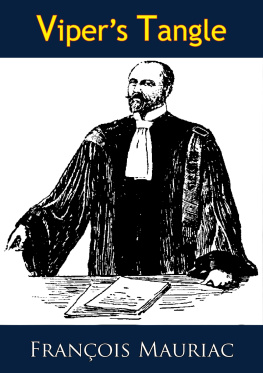
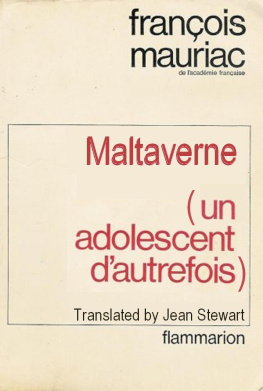
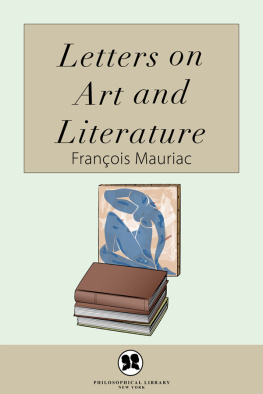
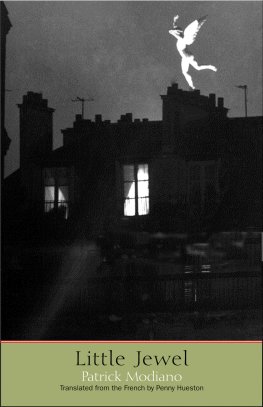
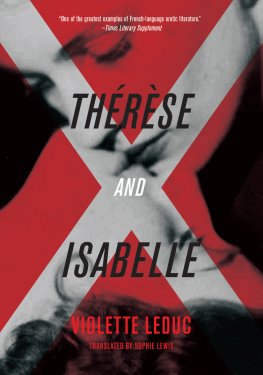
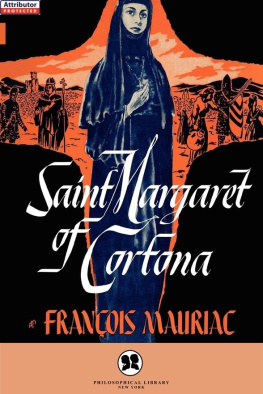
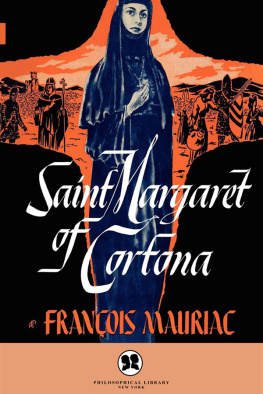
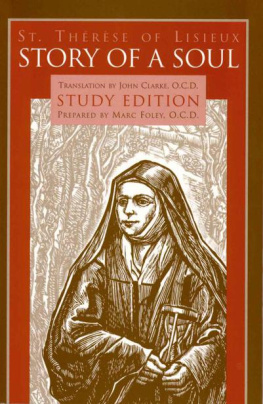
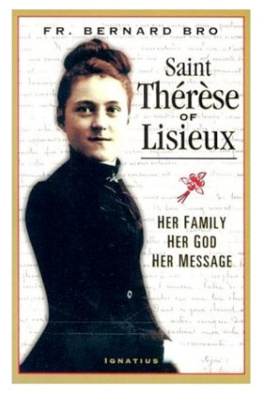
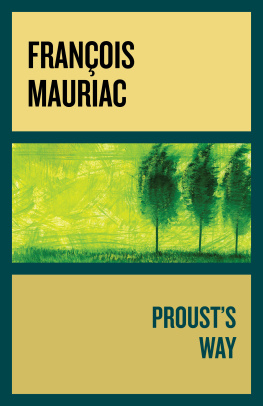
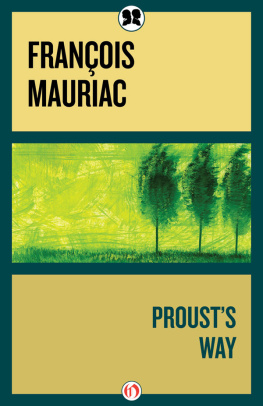

 The paper used in this publication meets the minimum requirements of American National Standard for Information SciencesPermanence of Paper for Printed Library Materials, ANSI/NISO Z39.48-1992.
The paper used in this publication meets the minimum requirements of American National Standard for Information SciencesPermanence of Paper for Printed Library Materials, ANSI/NISO Z39.48-1992.